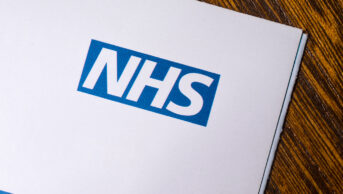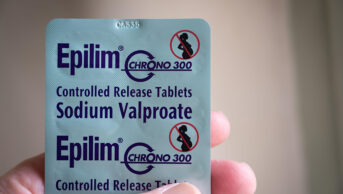
Hero Images Inc. / Alamy Stock Photo
Prescribing prescription drugs off-label to adults is associated with adverse drug events (ADEs) and doctors should be more cautious about this practice unless there is strong evidence to support their decisions, according to new research.
Researchers led by Tewodros Eguale from the department of medicine at McGill University, Montreal, found that the risk of an ADE increases when there is a lack of scientific evidence to support the use of a product off-label.
“Physicians and physician organisations should recognise the enormity of the problem,” the researchers write in JAMA Internal Medicine
[1]
on 2 November 2015.
The team analysed the primary care records of 46,021 patients in Quebec, Canada, who between them received 151,305 prescriptions from 1 January 2005 to 30 December 2009. Some 3,484 ADEs were found among the study participants, with an incidence rate of 13.2 ADEs per 10,000 person-months.
The rate of ADEs for off-label use was higher than that for on-label use — 19.7 per 10,000 person-months compared with 12.5 per 10,000 person-months (adjusted hazard ratio [AHR] 1.44; 95% confidence interval [CI] 1.30–1.60). Off-label use lacking strong scientific evidence had a higher ADE rate — 21.7 per 10,000 person-months compared with on-label use (AHR 1.54; 95% CI 1.37–1.72). Off-label use with strong scientific evidence had the same risk for ADEs as on-label use (AHR 1.10; 95% CI 0.88–1.38).
Off-label use may be clinically appropriate, say the researchers, who claim that the study is the first to systematically evaluate the association between off-label use of drugs and the risk for ADEs in an adult population. “However, a lack of physician knowledge of approved treatment indications was shown to be one factor for off-label prescribing,” they explain. “Physicians are finding it difficult to keep up with rapidly changing medication information, and this lack of knowledge is affecting treatment of patients.”
Tobias Dreischulte, lead pharmacist research and development at NHS Tayside, says the findings reinforce messages about off-label prescribing.
“It seems a reasonable suggestion that prescribers should exercise caution when prescribing a drug for an unlicensed indication when there is little evidence to support its use,” says Dreischulte. “The study suggests that not only is the benefit uncertain in these cases, but the risk of adverse drug reactions may be higher, implying that the balance of benefits and risks may be unfavourable, and no drug treatment will be the better choice in some cases.”
However, the findings do not surprise Dreischulte, since patients treated with off-label drugs are likely to be more vulnerable to adverse drug events. “This may be one of the reasons why these patients have been excluded from pre-marketing trials, or why the pharma company has not studied the drug in patients with that particular indication,” he adds.
References
[1] Eguale T, Buckeridge DL, Verma A et al. Association of off-label drug use and adverse drug events in an adult population. JAMA Intern Med 2015. doi:10.1001/jamainternmed.2015.6058
You may also be interested in

NHS England says PCNs should work with community pharmacy ‘in the best interests of patient care’

People harmed by valproate could receive £100,000 payout, patient safety commissioner says
